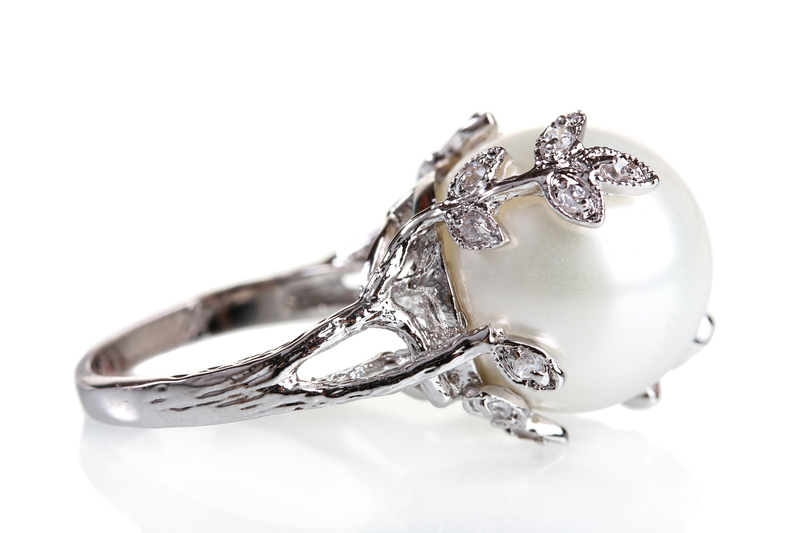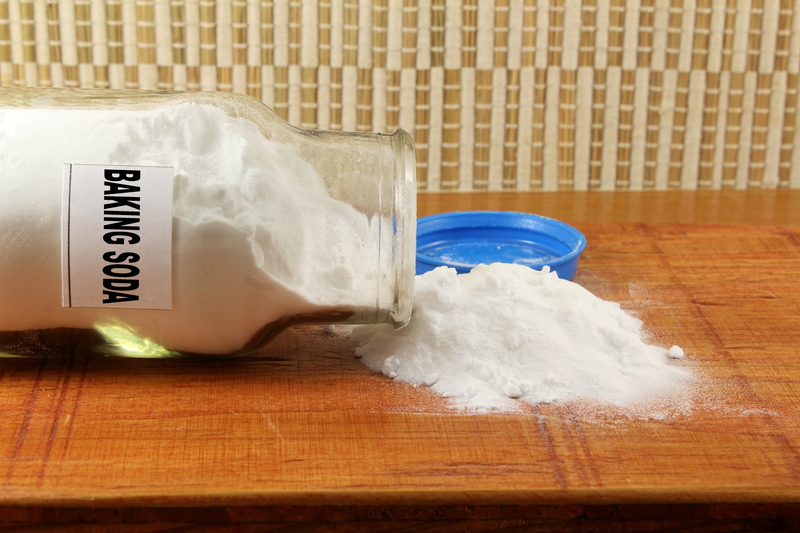Sustainable Ways to Dispose and Recycle Your Old Cookware
Posted on 26/08/2025
Sustainable Ways to Dispose and Recycle Your Old Cookware
If your home's kitchen drawers and cabinets are overflowing with old pots, pans, and bakeware, you might be wondering what to do with them. Throwing cookware directly into the trash is not only wasteful but also environmentally harmful. Fortunately, there are sustainable ways to dispose and recycle your old cookware that are friendly to the planet and sometimes even rewarding for you. In this comprehensive guide, we'll explore practical, eco-friendly options for cookware recycling, upcycling, and more.

Why Sustainable Cookware Disposal Matters
Each year, millions of tons of kitchenware such as pots and pans are discarded, contributing to the ever-growing landfill problem. Much of this old cookware is made from materials like aluminum, stainless steel, cast iron, and nonstick coatings, which take hundreds of years to break down. Worse, some pots and pans contain coatings and chemicals that can leach into the soil and water supply, causing environmental damage.
By choosing sustainable ways to dispose and recycle old pots and pans, you contribute to a cleaner planet, reduce the demand for new raw materials, and sometimes give your old items a meaningful second life. Let's look at your options.
How to Tell When It's Time to Recycle Cookware
Not every old pan or pot needs to be thrown out immediately. In some cases, a little care and repair can extend their lifespan. However, there are clear signs that it's time to seek eco-friendly disposal or recycling options:
- The nonstick coating is visibly scratched, peeling, or damaged.
- Rust has severely affected the cookware and cannot be cleaned off safely.
- The base is warped, making it unsafe or ineffective on stovetops.
- Handles are loose, broken, or cannot be tightened.
- Food sticks or burns easily, indicating the loss of cooking surface integrity.
- Your cookware contains lead, copper, or unsafe coatings not suited for cooking.
Understanding What Your Cookware is Made Of
Different cookware materials require different recycling or disposal approaches. To recycle cookware sustainably, first identify whether it is made of:
- Stainless Steel: Highly recyclable and accepted at most metal recycling centers.
- Cast Iron: Almost 100% recyclable and valuable for scrap metal.
- Aluminum: Recyclable, especially in pure form (beware of plastic handles and coatings).
- Copper: Considered a valuable recyclable metal.
- Nonstick (Teflon, PTFE, Ceramic): Tricky to recycle due to chemical coatings.
- Glass (Pyrex): Recyclable in specialized facilities, but not with regular glass recycling.
Understanding your cookware's material ensures you follow the right sustainable recycling methods and avoid contaminating the recycling stream.
Top Sustainable Ways to Dispose of Old Cookware
Metal Scrap Yards
Most metal cookware -- including stainless steel, cast iron, aluminum, and copper -- can be recycled at your local scrap metal facility. Follow these steps:
- Remove all plastic, rubber, wooden handles, and lids that are not metal.
- Contact your nearest metal recycler to confirm accepted items.
- Take your old pots and pans to the facility. Some centers even pay you for scrap metal.
Note: Nonstick pans often require special handling (see below).
Specialty Nonstick and Ceramic Cookware Recycling Programs
Because of the chemical coatings used on nonstick cookware like Teflon and some ceramics, standard metal recycling isn't always possible. However, some manufacturers and select recycling programs accept these items:
- Reach out to the brand's customer service to ask about take-back or recycling initiatives.
- Some specialty recycling programs, such as TerraCycle, may accept nonstick cookware for a fee.
- Check for local hazardous waste collection events accepting chemically treated materials.
Pro Tip: Always disclose if your cookware is coated when contacting recyclers.
Donate Usable Cookware
If your old cookware is still in good, safe working condition, consider extending its life by giving it away:
- Local charities, shelters, and food banks often need kitchen equipment in decent shape.
- Check with Goodwill, Salvation Army, Habitat for Humanity ReStores, or community kitchens.
- List the cookware on free-sharing platforms like Freecycle, Craigslist Free, or Facebook Marketplace.
Not only does this approach reduce landfill waste, it helps people in need and promotes the circular economy.
Repurpose or Upcycle Your Old Cookware
Give your old pots and pans a new lease on life by transforming them into functional or decorative items:
- Turn old pots into planters for herbs or flowers.
- Use fry pans as quirky wall art, clocks, or chalkboards.
- Transform deep pans into storage containers for kitchen tools or office supplies.
- Repurpose baking trays as serving trays or under-sink organizers.
- Get creative with lanterns, birdbaths, or candleholders from your old cookware.
These DIY projects are perfect for those looking to practice sustainable living without giving up cherished items.
Retail and Manufacturer Take-Back Programs
More cookware brands and retailers are launching take-back initiatives to promote responsible recycling:
- Calphalon, GreenPan, and Le Creuset are a few that have offered return/recycling programs.
- Some major retailers, like Bed Bath & Beyond, occasionally offer cookware recycling events.
- Return your used pans to the store or send them back via mail-in programs.
Look for information on the manufacturer's website or contact customer support for current options.
Local Curbside Recycling and Special Collection Events
Some municipalities accept metal cookware with curbside recycling, especially if it's non-coated:
- Check your community's recycling guidelines on accepting pots and pans.
- Remove all non-metal parts before placing them in the bin.
- Participate in local recycling drives or bulky item collection days for harder-to-recycle items.
What NOT to Do: Common Mistakes in Cookware Disposal
- Do NOT throw cookware with chemical coatings (Teflon, PTFE) into basic metal recycling bins.
- Avoid putting glass cookware (Pyrex) with regular glass recycling -- it requires specialized processing.
- Do not donate or give away severely rusted, damaged, or potentially toxic cookware.
- Avoid dumping old cookware in landfills unless absolutely unavoidable.
These mistakes can lead to recycling contamination, safety hazards, and wasted resources.
How to Prepare Cookware for Recycling
For best results and to ensure your old cookware recycling is truly eco-friendly, follow these steps:
- Clean thoroughly: Wash away any food residue, oils, or buildup.
- Disassemble: Remove and separate non-metal parts--handles, knobs, and lids--to match the recycling requirements.
- Check for labels: Some cookware has recycling instructions embossed or labeled on it.
- Bundle materials: If you're dropping off at a recycling center, sort steel, aluminum, copper, and other materials appropriately.
Benefits of Sustainable Cookware Disposal and Recycling
- Reduces landfill waste and pollution associated with mining new materials.
- Conserves energy and natural resources by keeping usable metals and materials in circulation.
- Prevents harmful chemical leaching from nonstick coatings and metals into the environment.
- Promotes a circular economy where products are reused, repurposed, and recycled rather than discarded.
- Supports local charities and community initiatives by donating usable kitchenware.
Innovative Upcycling Ideas for Old Cookware
Looking for creative ways to reuse old pots, pans, and bakeware? Try these fun, sustainable projects:
- Garden planters: Drill a few drainage holes in the bottom and plant herbs or flowers.
- Outdoor birdbaths: Use large frying pans or old mixing bowls, place them on stands and fill with water.
- Industrial-style shelves: Mount cast iron pans on walls as unique floating shelves.
- Wall art: Paint or stencil frying pans to create decorative kitchen artwork.
- Organizers: Hang muffin tins or loaf pans for drawer organization or office supply storage.

Where to Find More Information or Resources
For more local options for sustainable cookware recycling, check:
- The website of your city or municipal waste management authority
- Earth911.com for database searching of local recycling facilities
- TerraCycle for mail-in recycling programs
- Manufacturer or retailer websites for take-back initiatives
If in doubt, contact these organizations directly for current information on how to dispose of old pots and pans sustainably.
Conclusion: Make a Difference in Your Kitchen and the Planet
Each time you choose to dispose and recycle your old cookware in an eco-friendly way, you take one more step toward sustainable living. Whether you're donating, recycling, or repurposing, these simple acts prevent waste and support a greener tomorrow. Before tossing that warped pan or scratched baking sheet, consider the sustainable alternatives presented here -- your kitchen and the planet will thank you!
Take action today: Encourage family and friends to recycle cookware responsibly and share this knowledge for a sustainable, zero-waste future.




